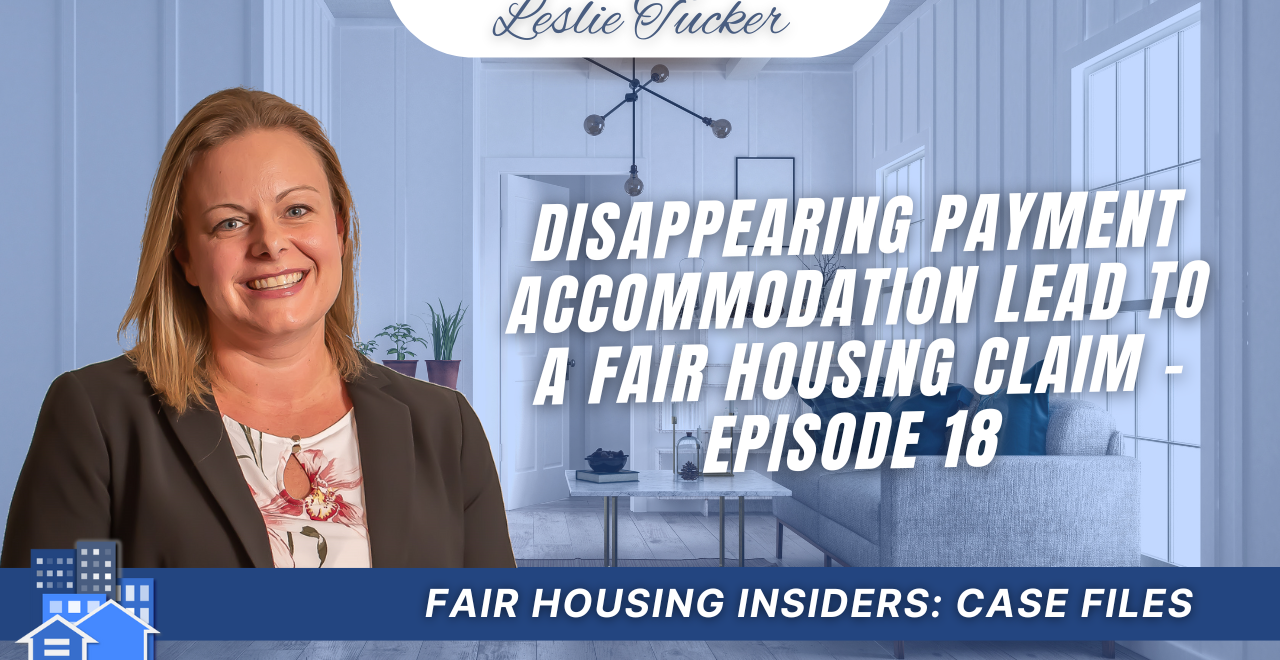Can rental payment dates be adjusted as a reasonable accommodation? Our latest case review focuses on the challenges tenants face when relying on disability payments as their primary income source and highlights what property managers need to consider if they want to avoid a fair housing claim.
United States v. MA Partners 2, et al. (N.D. Tex.)
The Case At Hand – A Disappearing Accommodation
This case involves a married couple, both of whom are disabled and receive Supplemental Security Income (SSI) and Social Security Disability Insurance (SSDI). These disability payments arrive around the third of each month, and the couple relies on these funds to pay their rent.
Initially, the property management allowed the couple to pay rent on the fifth of each month, accommodating the delay in their disability payments. This arrangement worked seamlessly for seven years until a change in the payment system occurred.
The situation changed dramatically when the property moved to a digital payment system. This new system did not recognize the couple’s informal arrangement with management, and late fees were automatically assessed when rent was not paid by the first. Despite their efforts to have the arrangement honored, the new management allegedly refused to accommodate their needs, leading to escalating late fees and significant stress for the couple.
Disability and Fair Housing Implications
Frustrated by the lack of accommodation, the couple filed a Fair Housing Complaint with the U.S. Department of Housing and Urban Development (HUD). This action prompted management to reverse the late fees and cease future charges. However, Management did not formally respond to the couple’s reasonable accommodation request to adjust their rent due date despite these changes. Eventually, while the HUD investigation was ongoing, the couple allegedly received a lease termination notice due to their persistent requests for conciliation.
HUD’s investigation concluded that there was cause to believe a fair housing violation had occurred. The resulting settlement required the property management company to undergo fair housing training, review and revise its reasonable accommodation policies, and pay the couple $10,000 in damages. Notably, the property manager individually settled to pay an additional $1,000 to the plaintiffs, highlighting the seriousness of the issue.
Warnings for Properties and Their Managers
It cannot be emphasized enough that HUD recognizes altering a rent due date or waiving late fees as a valid request for reasonable accommodation for tenants relying on disability payments. This case underscores the importance of housing providers being aware of such accommodation requests and their legal obligations under the Fair Housing Act.
Property managers must be vigilant in recognizing reasonable accommodation requests, even when they are not explicitly stated. For instance, if a tenant explains that their disability check arrives after the rent due date and therefore they cannot pay their rent on time, this should be treated as a request for accommodation. Managers should be proactive in understanding and implementing HUD’s guidelines to avoid similar legal pitfalls, while still understanding that management is not required to automatically adjust a resident’s due date simply because they happen to receive a disability payment.
Property managers should hone their listening skills to identify and appropriately respond to reasonable accommodation requests. Whether this is done through practical/online training, seminars, or staff meetings, it’s crucial to be attentive to these nuances. Also, staying considerate when tenants communicate issues related to their disability income and payment schedules is of utmost importance in these types of scenarios.
In Summary
The case of rental payment dates and disability income presents a crucial learning opportunity for property managers and housing providers. The challenges tenants face relying on disability payments highlight the need for awareness and sensitivity in handling such scenarios. This case underscores the importance of recognizing and accommodating reasonable requests, even when they are not explicitly stated.
As shown by the outcome of this HUD investigation, failing to do so can result in significant legal and financial consequences. Property managers must be proactive in understanding their legal obligations under the Fair Housing Act, ensuring they provide fair and equitable treatment to all tenants. By honing their listening skills and staying informed through training and education, property managers can better navigate the complexities of rental payment dates and disability income, fostering a more inclusive and compliant housing environment.

